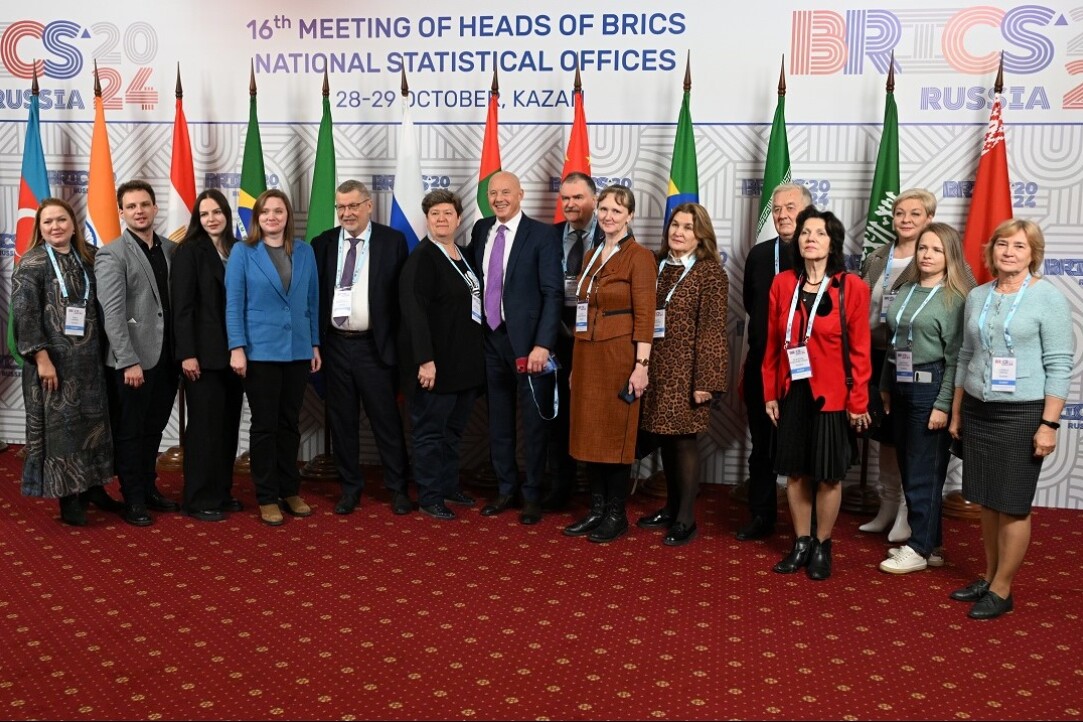
BRICS Representatives Discuss the Development of Statistics in Member Countries
The significance of statistics in today’s digital age has reached a new level. Many decisions at government and business levels are based on data analysis. However, there is a mixed perception of official statistics, which negatively affects trust in public policies. The heads of BRICS statistical agencies discussed this issue and ways to address it at a forum in Kazan, where a representative from HSE University also participated in the event.
‘Statistics Should Be Available and Comprehensible to Everyone’
Implementing a digital analytical platform, opportunities for Big Data, and other prospects for the development of Russian statistics were discussed by participants at a plenary session of the XX April International Academic Conference.
Entering the Big Data Era — Will Traditional Statistics Still Be in Demand?
The development of a national data management system, along with its architecture and ontology, is one of the key issues for a future cabinet, believes Maxim Akimov, First Deputy of the Chief of the Government Staff of the Russian Federation. A discussion at a panel session on data in the digital era at the XIX April International Academic Conference at HSE looked into the key challenges in regards to Russian statistics and possible responses to them.
How Can Science Be Governed and Evaluated?
Giorgio Sirilli, former chairman of the OECD Working Party of National Experts on Science and Technology Indicators (NESTI), is offering lectures to students in the Master’s programme in Governance of Science, Technology and Innovation (STI).
Can Everything in Science Be Measured?
Giorgio Sirilli, Associate Research Director at Italy’s Research Institute on Sustainable Economic Growth of National Research Council (IRCrES), active participant and former chair of the OECD Working Party of National Experts on Science and Technology Indicators (NESTI), and author of over 200 academic publications, gave an open lecture at HSE on January 21, 2015, as part of the Governance of Science, Technology and Innovation MA programme.
Foresight Becomes a Part of Government Policy
Foresight, a system of future studies in science and technology, is being institutionalized, brings together different levels of ‘scanning’ the future, and is branching out into new sectors. These trends were among those experts identified at the 4th annual international academic conference ‘Foresight and STI Policy’, organized by the HSE Institute for Statistical Studies and Economics of Knowledge (ISSEK), which opened on November 6.
Russians Respect Doctors and Lawyers
Many Russians, when asked whether certain occupations, particularly those of a politician or an academic, are prestigious or desirable,will give a different answer depending on whether they are refering to their own attitudes, perceived societal attitudes, or preferred career choices for their children. So Konstantin Fursov and Valentina Polyakova, research fellows at the HSE's ISSEK, found in their study Monitoring Innovative Behaviour in the Russian Population.
Giulio Perani: ‘I am always very happy to meet students and researchers from the HSE’
On June 14, 2013 a visiting expert Giulio Perani delivered a lecture on 'Measuring Innovation beyond Enterprises: Options and Challenges' at the National Research University – Higher School of Economics (HSE). The event was organised by the HSE ISSEK Research Laboratory for Economics of Innovation.
HSE and the International Year of Statistics
This year HSE is taking part in the International Year of Statistics. We asked Vice Dean of the Faculty of Economics Alexey Ponomarenko to tell us about the events which are planned in connection with it, including those at the April Conference.
'New' Economy Ignored by Statistics
Official statistics fail to capture – in fact, they simply ignore – the development of Russia’s high-tech industry. This distorts macroeconomic indicators and negatively impacts the quality of the government's decisions. Vladimir Bessonov, Head of HSE Expert Institute's Laboratory for Studies of Inflation and Economic Growth, has authored the report: 'In Search of Information and Communication Technologies: The Quirks of Russian Statistics and Economic Measurements'.

